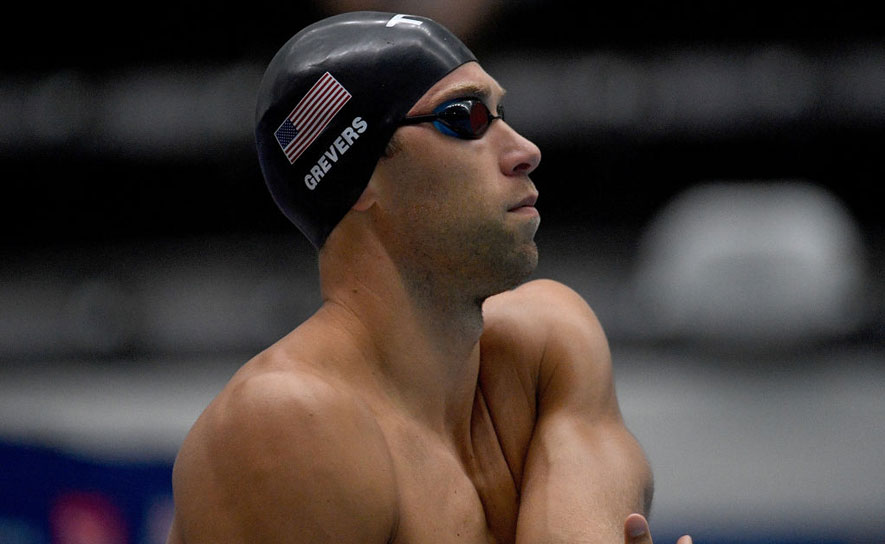USA Swimming News
Why You Shouldn’t Rush Things Behind the Blocks

by Olivier Poirier-Leroy
With the mountain of early morning swim practices, the two-a-days, and the endless lactate sets behind you, it’s time to get up on the block and let your training run free.
Although the hard work is essentially done, there is another hurdle to deal with: the stress of competition.
Even though practice is hard, competition brings a different layer of difficulty. In training, there isn’t as much pressure. Your family and friends aren’t in the stands watching. And you aren’t going up against seven other swimmers who are chasing after the same thing you are.
One of the strategies swimmers use when they come face-to-face with the stressful environment of competition is to rush things.
To bulldoze through the moment so that they can put the stress of competition behind them.
This desire sounds a little something like, “I just want to get this race over with.”
While feeling this way is understandable, this line of thought is counter-productive to fast swimming.
It means you are white-knuckling your focus and are experiencing a lack of control. You want to get the race over with so you can get back to a feeling of being in control.
This kind of “escapist” behavior is a coping strategy that athletes of all types use to get out of Dodge as fast as possible when the heat of competition goes up.
In one example, researchers [Jordet and Hartman 2008] found that when soccer players sped up their preparation time for a penalty kick, they were significantly more likely to miss under pressure.
Rushing things might help get you out of a stressful situation faster, but it’s not going to help you get any closer to your goals.
Stick to your pre-race routine
There are plenty of benefits of a pre-race routine for swimmers, not the least of which is that it gives you a sense of control in a stressful and unfamiliar situation.
By rushing through your pre-race routine to get the race over with, you are voiding the usefulness of the routine.
Instead of methodically going through your little routine, you are responding to outside pressure and stress.
Intentionally take things slower when behind the blocks.
When you watch swimmers get ready before their races, you see a good variety in speed and intensity when it comes to preparing. Some rip off their sweats, while others move expertly through their pre-race routine. Be the latter swimmer.
The next time anxiety and pressure start to well up, half speed whatever it is you are doing. Be intentional in your movements and preparation.
Stick to your process.
When we rush, we start to panic. And when we start to panic, we begin to ditch the things that typically work for us.
Over the years you’ve developed a process for peak performance—things that you know help you swim your best. Things like favorite meals, stretches, drills to enhance your feel for the water, and so on.
Your process is something that works, is proven, and works best when you don’t abandon it at the last second because you are feeling frazzled.
Stress and anxiety are normal, even for champion swimmers
When we are feeling wound up in those stormy moments before the big race, it can feel like we are alone and that what we are experiencing is unique to us.
Don’t worry—every swimmer who has ever worked hard for months or years and laced up a tech suit has felt what you are feeling behind the block.
Elite swimmers haven’t mastered a way to suppress or run away from the nerves. Rather, they feel them and use the excitement to their advantage.
The next step
Go in with the understanding that pressure and anxiety are normal and part of the competitive experience.
Have a pre-race routine that is unique to you, including things you have control over.
When you feel the rising lump of nerves in your throat, take a deep breath, slow things down, and focus on nailing your own routine.
From there, the results will take care of themselves.
*
Olivier Poirier-Leroy is a former national level swimmer and contributor to USA Swimming.
He’s the author of Conquer the Pool: The Swimmer’s Ultimate Guide to a High-Performance Mindset, a 300-page workbook that gives swimmers the tools and knowledge necessary to bulletproof their performances in the pool.
He also writes a weekly mental training tips newsletter for swimmers and coaches that you can subscribe to for free here.